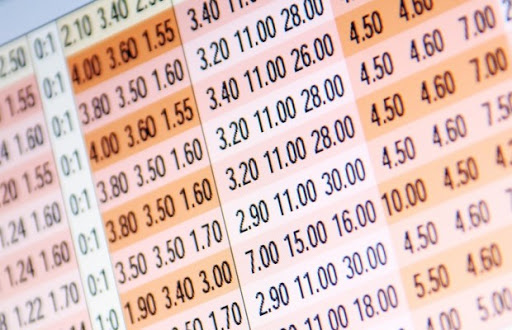How Soccer Betting Odds Are Calculated
A coin toss has two possible results: heads or tai

A coin toss has two possible results: heads or tails. Under ideal conditions, the probability of heads or tails is equal, so you have a 50% chance of guessing the right outcome. In real life, in turn, things are a bit different: no coin is perfectly balanced, so each one is biased for heads or tails. So, calculating the odds of a coin toss goes way beyond simple probabilities - there are many factors that have to be taken into account.
The same is true for soccer betting - except that the number of factors to be taken into account grows exponentially, making it a complicated problem even for professionals.
A complex calculation
There are many bets you can place on a soccer match.
First and foremost, there is the outright winner of a match - there is a team that’s more likely to win (the favorite), and there is another that is less likely to be victorious (the underdog). It’s pretty easy to predict the outright winner if you are at least a bit knowledgeable about soccer: the teams’ relative “strength” and their recent history will help you guess the winner correctly almost every time.
Even here, in turn, there are things to be taken into account.
If one of the teams plays at its home stadium, their chances of winning improve - they play in a familiar environment, surrounded by their usual fans cheering mostly for them, and they are much better rested than their opponents coming from a different city, maybe even a different country. And this is not all. The weather on the day of the match can also influence the outcome of a match, and so can the time of the day, the officials, the injured players that are sidelined, and so on.
And this is the outcome that’s the easiest to predict - even fans can do it, and they are biased for their own favorite soccer teams.
When things get complicated
Things get complicated when it comes to the many other things you can bet on ahead of a soccer match.
Bookmakers post odds for way more than just the winning team: they cover everything from the number of goals, the first goalscorer, the number of faults, corners, and such. The bookies don’t consult augurs, fortune tellers, or other diviners to glimpse into the future - they calculate the probabilities based on huge piles of historical data.
Professional oddsmakers have massive databases that contain detailed records of every player that’s participating in the event. Based on this big pile of information, they calculate the probability of each variable - that there will be over 2.5 goals, for example, or that [insert name of football star here] will score three times during the match. These probabilities are then transformed into numbers and forwarded to the bookmakers. In the end, all the bookies have to do is to set their margin (this rarely exceeds 5%) and publish them online or in their betting shops to start taking bets. Keeping them attractive enough for punters to bet on them, of course.
-
Mid-Season Meltdowns: Why the Winter Break Often Becomes the ‘Sacking Season’ in the Premier League

-
Maximizing Football Returns on Betting Sites With Bonus Offers

-
The Last Matchday That Quietly Changed Everything

-
How Modern Football is Shaping Fan Culture in the Digital Age

-
The Importance Of Using Historical Records Of Face-to-face Meetings For Betting

-
The Best Slot Games for Football Fans to Try Out

-
Inside Football’s Narrative: How History and Context Shape the Modern Game

